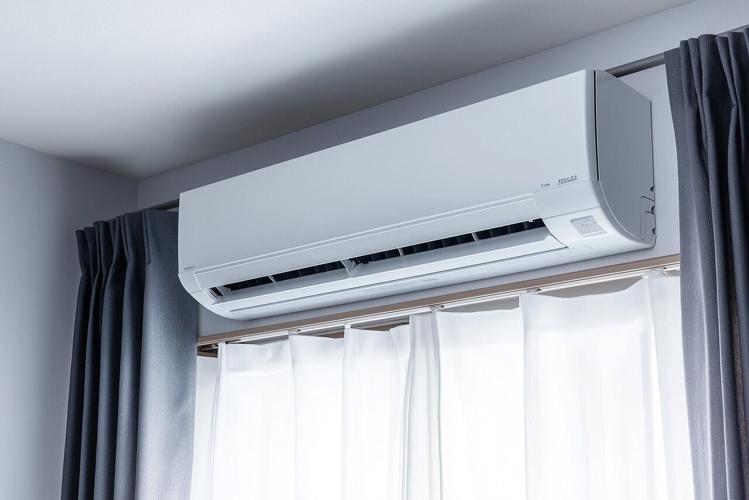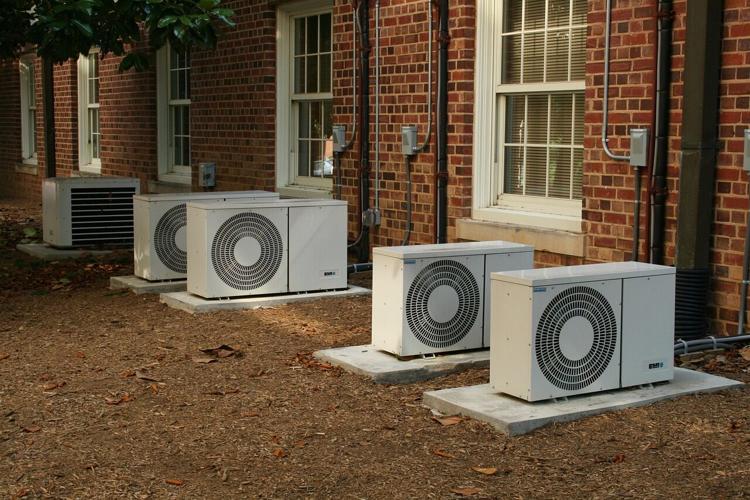Heating, ventilation, and air conditioning (HVAC) systems are important for maintaining comfort in residential and commercial buildings year-round. Many older HVAC units struggle with energy efficiency, leading to higher utility bills and greater environmental impact. Upgrading to a modern HVAC system can offer significant efficiency improvements that benefit homeowners, businesses, and the planet alike. This blog post explores the key efficiency gains that come with HVAC system upgrades, breaking down how new technology and smarter design translate into better performance, cost savings, and sustainability.

Improved Airflow and Distribution Systems
Upgraded HVAC systems often include redesigned ductwork and improved airflow management to maximize efficiency. Proper air distribution ensures that heated or cooled air reaches every corner of a building evenly, reducing hot or cold spots and improving comfort. Old or poorly designed duct systems can leak or restrict airflow, forcing the HVAC system to work harder and consume more energy. New systems, better sealing materials, and smart zoning technologies allow for precise control over airflow to different areas, reducing wasted energy and ensuring consistent indoor temperatures.
Higher Seasonal Energy Efficiency Ratios (SEER)
One of the most measurable efficiency improvements with HVAC upgrades is reflected in the Seasonal Energy Efficiency Ratio (SEER) rating. SEER measures the cooling output of an air conditioning system compared to the energy it consumes over a typical cooling season. New HVAC units typically have much higher SEER ratings than older models, meaning they deliver more cooling per unit of electricity consumed. For example, while older units might have SEER ratings around 10 or 12, new models often exceed 20 SEER. This improvement translates directly into energy savings and a lower carbon footprint, making SEER a critical factor when considering an HVAC upgrade.
Smart Controls and Automation
Upgrading an HVAC system often means gaining access to smart controls and automation features that improve efficiency through intelligent operation. Modern thermostats can learn user preferences, adjust settings based on occupancy, and communicate with other smart home devices. These features allow the system to avoid unnecessary heating or cooling when no one is home or during off-peak hours. By automating temperature adjustments and integrating with weather forecasts, smart HVAC controls optimize energy use, reducing waste and saving money without sacrificing comfort.
Enhanced Efficiency Through Advanced Technology
Advancements in HVAC technology have greatly improved system efficiency, allowing for more precise climate control and energy savings. One notable innovation is the development of ductless mini-split systems, which eliminate the energy losses commonly associated with traditional ductwork. These systems use advanced compressors and inverter technology to adjust cooling or heating output based on real-time demand, reducing unnecessary energy consumption. By operating at variable speeds, these systems maintain consistent indoor temperatures while using less power than older, single-speed units. This technological progress helps lower utility bills and contributes to a more sustainable approach to managing indoor comfort throughout the year.
Integration with Renewable Energy Sources
Upgrading your HVAC system opens the door to integrating renewable energy solutions, such as solar power, for further efficiency gains. New HVAC technology can be designed to work seamlessly with solar panels, heat pumps, and geothermal systems, creating a more sustainable and cost-effective energy strategy. This integration reduces reliance on fossil fuels and increases energy independence. By coupling a modern HVAC upgrade with renewable energy, property owners can drastically reduce operational costs and environmental impact, positioning their homes or businesses as models of energy efficiency and green technology.
Reduced Environmental Impact
Efficiency improvements in HVAC systems have a direct impact on reducing environmental harm. Newer systems use refrigerants with lower global warming potential and feature energy-saving components that cut down electricity consumption. By upgrading, homeowners and businesses contribute to reducing greenhouse gas emissions associated with energy production. Efficient HVAC units place less strain on the electrical grid during peak demand periods, supporting a more sustainable energy ecosystem. This environmental benefit adds another important dimension to the value of upgrading your HVAC system.
Lower Maintenance Costs and Longer Lifespan
Modern HVAC systems are thoughtfully engineered for improved efficiency, reliability, and ease of maintenance. These upgraded units typically experience fewer breakdowns because they operate more smoothly and incorporate durable components designed to withstand regular wear over extended periods. Many new systems feature built-in diagnostic tools that monitor performance and alert owners or technicians to potential problems early on, allowing for repairs before issues escalate into costly failures. This proactive approach significantly reduces maintenance frequency and expenses, while minimizing downtime. These benefits enhance the value of upgrading an HVAC system.
Enhanced Indoor Air Quality for Health
Efficiency upgrades in HVAC systems often coincide with improvements in indoor air quality (IAQ). Advanced filtration systems, humidity control, and ventilation features promote healthier living environments and contribute to system efficiency. Clean filters and properly balanced humidity reduce the load on the HVAC system by ensuring that air flows freely and that the system does not have to work harder to compensate for poor air conditions. This synergy between air quality and energy efficiency highlights how upgrading an HVAC system can benefit comfort and operational performance simultaneously.
Financial Incentives and Rebates
Another efficiency-related advantage of upgrading HVAC systems is the availability of financial incentives and rebates. Many utility companies, governments, and environmental organizations offer rebates or tax credits for installing energy-efficient HVAC equipment. These incentives help offset the upfront costs of the upgrade, making it more affordable and accelerating the return on investment. Homeowners and businesses should research local programs and consult with HVAC professionals to maximize these benefits. Taking advantage of financial incentives adds a practical reason to upgrade beyond the energy savings alone.

Upgrading your HVAC system brings numerous efficiency improvements, from advanced technology and better airflow to smarter controls and environmental benefits. These enhancements translate into lower energy consumption, reduced maintenance costs, improved indoor air quality, and even financial incentives. Modern systems offer compatibility with renewable energy sources, supporting a greener future. Investing in an HVAC upgrade is a strategic move toward long-term savings, sustainability, and healthier living or working spaces. If you’re considering an HVAC upgrade, these efficiency improvements highlight why now is the perfect time to make the change.



(0) comments
We welcome your comments
Log In
Post a comment as Guest
Keep it Clean. Please avoid obscene, vulgar, lewd, racist or sexually-oriented language.
PLEASE TURN OFF YOUR CAPS LOCK.
Don't Threaten. Threats of harming another person will not be tolerated.
Be Truthful. Don't knowingly lie about anyone or anything.
Be Nice. No racism, sexism or any sort of -ism that is degrading to another person.
Be Proactive. Use the 'Report' link on each comment to let us know of abusive posts.
Share with Us. We'd love to hear eyewitness accounts, the history behind an article.